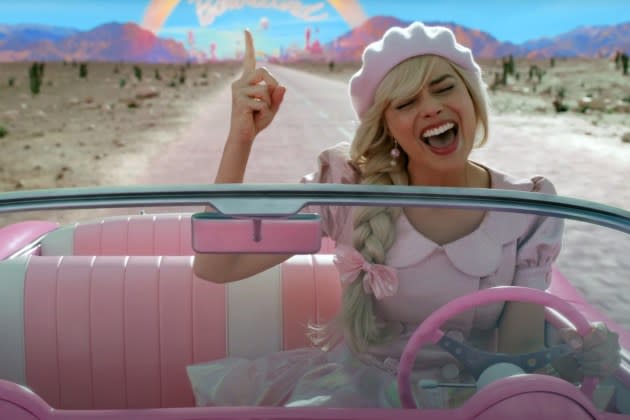PGA Heads Reflect on Guild’s Success Predicting Best Picture Oscar Winners

Many awards ceremonies champion themselves as stepping stones to the Oscars, but the Producers Guild of America Awards — to be presented Feb. 25 at Ovation Hollywood’s Ray Dolby Ballroom — have an enviable track record to support the claim. The winner of the PGA’s top prize, the Darryl F. Zanuck Award, has matched the Oscar winner for best picture for 15 of the last 20 years, and 24 of the 33 years since the first ceremony in 1990.
For Donald De Line, a studio exec turned producer who serves as PGA president alongside Stephanie Allain, the guild’s track record adds to the anticipation surrounding the pre-Oscar kudofest. “Part of the fun is the horse race and the excitement of it all,” he says.
More from Variety
This year, the 10 Zanuck nominees are a 100% match for those on the Oscar ballot for best picture, and the event falls in the middle of final voting for the Academy Awards. But the quality and scope of the films, which range from big blockbusters “Barbie” and “Oppenheimer” to international entries “Anatomy of a Fall” and “Zone of Interest,” is even more important to PGA leadership.
“Usually, I struggle to get to 10,” admits De Line. “This year, I had excess on my list.”
“I wish there were 12 slots or 13,” concurs Allain. “I would have added ‘The Color Purple’ and ‘Origin.’ There were so many good movies this year.”
Beyond that award, the PGA also presents prizes for animated features, documentary features, episodic TV and limited series, among others. It also bestows an Innovation Award recognizing a “noteworthy, impactful emerging media program that significantly elevates the audience’s viewing experience.” Career achievement honors this year will go to Martin Scorsese (David O. Selznick Award), Gail Berman (Norman Lear Achievement Award) and Charles D. King (Milestone Award).
The PGA Awards and the organization behind them don’t just exist to honor good work. Their larger goal is to raise the public profiles and reputations of producers, who have historically been misunderstood by those outside — and, to a degree, inside — the industry.
“There are some bad stereotypes. Cigar-chomping, money-grubbing,” says Allain. “If you’re a producer, you’re out here because you frickin’ love movies. You love telling stories. There’s no other reason to do it.”
People also tend to be confused by the jumble of producer titles that appear in credits, and the guild has worked to clarify that through initiatives such as the Producers Mark certification program launched in 2012.
“In terms of our guild membership, there are a lot of different titles and classifications,” says De Line. “There are associate producers and production managers, who deal with mostly below the line issues and budgets and schedules and all the technical, extremely important things that go on in the making of any kind of content. And then there are producers — you could call them lead producers — who find material or a writer and toil creatively for years to bring a project to fruition on screen. We want them all to be respected and understood, and that’s part of our education campaign that we’re going to start to roll out.”
The awards are once again chaired by Mike Farah and Joe Farrell, CEO and chief creative officer, respectively, of Funny or Die. But they won’t be telecast any time soon.
“We have talked about it, and we always end up feeling like… it’s always in the back of your head that you’re on camera, you’re being recorded,” De Line says. Keeping it off-air “allows for a different kind of freedom and spontaneity in the room — and we want to protect that and keep it something special.”
Best of Variety
SAG Awards Final Voting Closes: Why I'm Changing My Prediction for Best Actress
Oscars: Final Voting Opens for Five Days; What Surprising Winners Could be Lurking?
Sign up for Variety’s Newsletter. For the latest news, follow us on Facebook, Twitter, and Instagram.

 Yahoo News
Yahoo News 